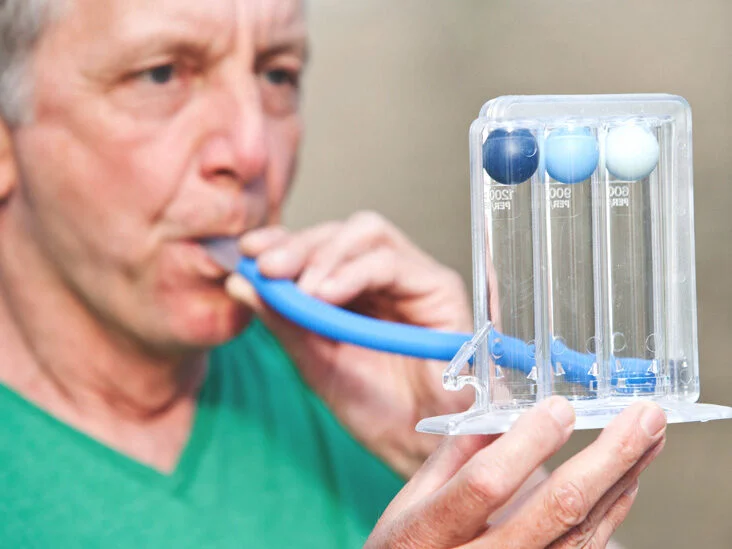Spirometry is the most common of the pulmonary function tests. It measures lung function, specifically the amount and/or speed of air that can be inhaled and exhaled. Spirometry is helpful in assessing breathing patterns that identify conditions such as asthma, pulmonary fibrosis, cystic fibrosis, and COPD.
- Spirometry is generally a safe test. You may feel short of breath or dizzy for a moment after you perform the test.
- Because the test requires some exertion, it isn't performed if you've had a recent heart attack or some other heart condition. Rarely, the test triggers severe breathing problems.
- Wear loose clothing that won't interfere with your ability to take a deep breath.
A spirometer measures the amount of air you can breathe out in one second and the total volume of air you can exhale in one forced breath. These measurements will be compared with a normal result for someone of your age, height and sex, which will help show if your lungs aren't working properly.
Normal values in healthy males aged 20-60 range from 4.5 to 3.5 liters, and normal values for females aged 20-60 range from 3.25 to 2.5 liters
Do not smoke for one hour before test.Do not drink alcohol within four hours of test.Do not eat a large meal within two hours of test.Please wear loose clothing.Do not perform vigorous exercise within 30 minutes of test.

